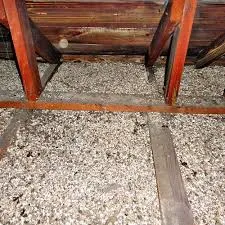Sep . 23, 2024 18:21 Back to list
Thermal Insulation Materials Manufacturing Solutions for Energy Efficiency and Sustainability
The Role of Thermal Heat Insulation Materials in Modern Construction
In today's world, energy efficiency has become a paramount concern in both residential and commercial buildings. As the demand for sustainable living practices rises, the importance of thermal heat insulation materials in construction has gained significant recognition. This article explores the various aspects of heat insulation materials, their manufacturing processes, and their vital role in enhancing energy efficiency and comfort in buildings.
Understanding Thermal Heat Insulation
Thermal insulation materials are designed to reduce the transfer of heat between objects or environments. In buildings, they help maintain a consistent indoor temperature, minimizing the need for heating and cooling systems. This leads to reduced energy consumption, which is crucial for lowering utility costs and minimizing environmental impact. Insulation materials can be categorized based on their thermal resistance (R-value), thermal conductivity, and other properties.
Common Types of Thermal Insulation Materials
There are various types of thermal insulation materials available in the market, each with its unique properties and applications
1. Fiberglass Insulation One of the most popular types, fiberglass insulation consists of fine glass fibers. It is lightweight, fire-resistant, and can significantly reduce sound transmission. Its R-value ranges from 2.9 to 4.3 per inch, making it effective for residential and commercial applications.
2. Foam Board Insulation This rigid insulation material is often made of polystyrene or polyisocyanurate. It provides a high R-value per inch and is used in various applications, including exterior walls, roofs, and foundations. Foam board insulation is water-resistant and offers excellent thermal performance.
3. Spray Foam Insulation As a versatile insulator, spray foam can expand to fill gaps and cracks, creating an airtight seal. It provides an R-value of up to 6.5 per inch and acts as both insulation and air barrier, making it ideal for irregular structures and hard-to-reach areas.
4. Mineral Wool (Rock Wool) Insulation Made from natural or recycled materials, mineral wool insulation has excellent fire resistance and sound-absorbing properties. Its R-value typically ranges from 3.0 to 4.0 per inch and it is commonly used in walls and attics.
thermal heat insulation materials factory

5. Cellulose Insulation This eco-friendly material is made from recycled paper products treated with fire retardants. It has an R-value of around 3.1 to 3.8 per inch and offers excellent thermal performance along with soundproofing benefits.
Manufacturing Process of Insulation Materials
The manufacturing of thermal insulation materials involves a series of processes that vary depending on the type of material being produced. For instance, fiberglass insulation is made by melting glass and spinning it into strands. These strands are then combined with a binding agent and formed into batts or rolls. In contrast, spray foam insulation is typically produced by mixing chemical components that react and expand upon application.
In a thermal heat insulation materials factory, quality control is crucial. Manufacturers must adhere to stringent standards to ensure that products meet industry regulations and perform effectively. This involves rigorous testing for R-values, fire resistance, and environmental impact.
The Impact of Thermal Insulation on Energy Efficiency
The integration of high-quality thermal insulation in building designs offers numerous benefits. Firstly, it enhances energy efficiency, leading to significant reductions in energy bills. Buildings with proper insulation require less energy for heating and cooling, resulting in lower greenhouse gas emissions.
Additionally, effective insulation increases occupant comfort by minimizing temperature fluctuations and reducing noise transmission. This contributes to a healthier indoor environment and boosts overall quality of life.
Conclusion
As the world increasingly prioritizes sustainability, thermal heat insulation materials play a critical role in the construction industry. By incorporating modern insulation solutions, builders can improve energy efficiency, reduce operational costs, and contribute positively to the environment. The future of insulation technology is promising, with ongoing innovations aimed at enhancing performance and sustainability.
-
Eco-Friendly Granule Covering Agent | Dust & Caking Control
NewsAug.06,2025
-
Fe-C Composite Pellets for BOF: High-Efficiency & Cost-Saving
NewsAug.05,2025
-
Premium Tundish Covering Agents Exporters | High Purity
NewsAug.04,2025
-
Fe-C Composite Pellets for BOF | Efficient & Economical
NewsAug.03,2025
-
Top Tundish Covering Agent Exporters | Premium Quality Solutions
NewsAug.02,2025
-
First Bauxite Exporters | AI-Optimized Supply
NewsAug.01,2025
